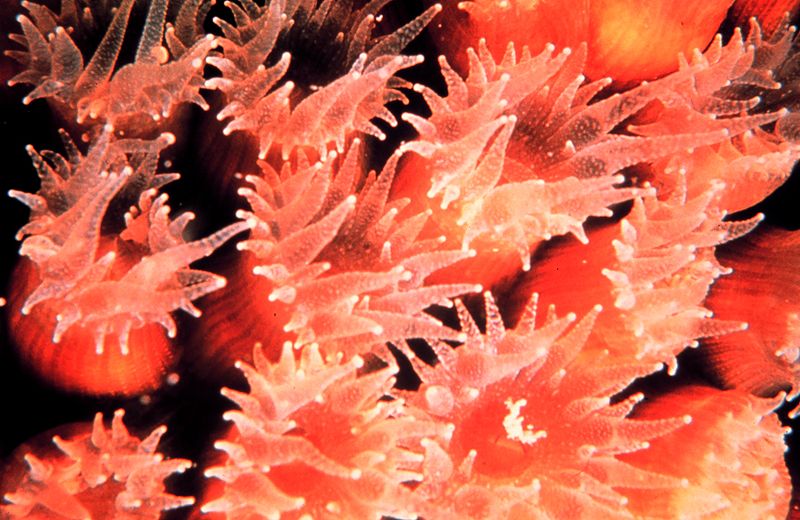Please note: Osher Rainforest will be closed for maintenance Jan. 14–16.
Science News
Coral Hearing
May 18, 2010

“Coral reefs teem with life, covering less than one percent of the ocean floor, but supporting about 25 percent of all marine creatures,” according to National Geographic. These ecosystems are similar to underwater tropical forests, in terms of their significance to global biodiversity. How can we protect this valuable resource? Take a listen!
According to the textbook, An Introduction to Marine Ecology, “A typical coral colony forms several thousand larvae per year to overcome the odds against formation of a new colony.” The larvae have to act quickly to find a safe place to land and establish a colony or they will die.
Recently, Dutch scientists discovered that, like baby reef fish, coral larvae use sound as a cue to find those safe places.
According to their abstract in PLoS One:
Free-swimming larvae of tropical corals go through a critical life-phase when they return from the open ocean to select a suitable settlement substrate…. Here, we show that coral larvae respond to acoustic cues that may facilitate detection of habitat from large distances and from upcurrent of preferred settlement locations.
The team designed a “choice chamber” (a device that offers small test subjects two or more contrasting conditions and allows them to move freely towards the one they prefer), put coral larvae into it and played them recordings of a coral reef. The results clearly showed that the flea-sized larvae were strongly attracted to the noise. This presumably influenced what they then perceived as a suitable habitat within the chamber.
How these creatures detect sound is unknown, but Dr. Steve Simpson, one of the authors of the study, offers, "At close range sound stirs up water molecules, and this could waggle tiny hair cells on the surface of the larvae, providing vital directional information for baby corals."
Understanding how these vulnerable animals complete their lifecycle is essential to ensure appropriate management. Coral reefs around the world are already under threat from various conditions like global warming and ocean acidification. Now you can add noise pollution to the list.
Dr. Simpson states that, “Anthropogenic noise has increased dramatically in recent years, with small boats, shipping, drilling, pile driving and seismic testing now sometimes drowning out the natural sounds of fish and snapping shrimps.”
With this study (and according to it), “The alleviation of noise pollution in the marine environment may gain further urgency.” Here’s hoping we listen up…